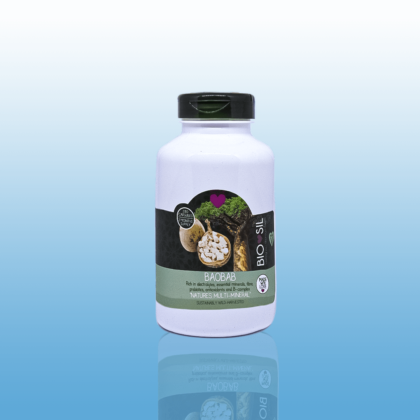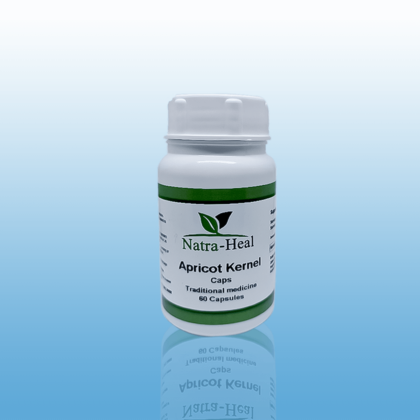Product: Coral Calcium vegan capsules (60)
Description: A natural multi-mineral booster (high in Calcium and Magnersium) which is easily absorbed
Ideal for people who have an acid pH
Recommended dosage: Take 1 capsule twice per day between meals
Please exercise caution if pregnant, nursing or taking other forms of treatment

Further information from Healthline site: https://www.healthline.com/nutrition/coral-calcium
Coral calcium is a supplement usually derived from coral sand deposits. These sand deposits, which were once part of a coral reef, are typically collected directly from coastal land or shallow waters surrounding it
To manufacture coral calcium, the coral sand deposits are first refined to remove any pollutants or other unwanted substances, then ground into a powder. This powder is sold as-is or packaged into capsules.
Coral calcium supplements are comprised largely of calcium carbonate but may also contain small amounts of magnesium and other trace minerals (1Trusted Source).
Coral calcium’s composition is similar to that of human bone and has been used as bone graft material for over 30 years (1Trusted Source).
Nowadays, it’s mostly used to prevent or treat low calcium levels among those who don’t get enough of this nutrient through diet alone. Although it’s said to offer many additional health benefits, most of these aren’t currently supported by science.

Benefits and uses: Proponents assert that coral calcium boasts a range of health benefits, from stronger bones and fewer arthritis symptoms to protection from cancer and Parkinson’s disease.
However, very few of these claims are backed by evidence.
May improve bone health: Calcium plays important roles in your body and is critical for muscle contraction, as well as keeping your bones strong and healthy
A diet containing too little calcium may cause this mineral to leach from your bones, weakening them over time. Conversely, calcium-rich diets have been consistently linked to stronger, healthier bones.
This link appears especially strong when you consume calcium from food, but supplements may aid people who are unable to get enough calcium from their diet (2).
Unlike other calcium supplements, coral calcium naturally contains magnesium and small amounts of trace minerals. Some experts suggest that this combination may be more beneficial to bone health than calcium alone (1Trusted Source).
One small, older human study further suggests that coral calcium is easier to absorb than the type found in most calcium supplements (3Trusted Source).
Moreover, an animal study reports that mice given coral calcium had slightly more bone mineral content (BMC) and bone mineral density (BMD) in the femur than those given regular calcium supplements (1Trusted Source).
Nonetheless, there’s limited support for these results overall.
May reduce blood pressure: Several studies link high calcium intake to slightly lower systolic blood pressure, which is the upper number on a blood pressure measurement
That said, this benefit seems to only apply to people who already have high blood pressure (4Trusted Source)
Similarly, some research suggests that high calcium intake during pregnancy may reduce the risk of preeclampsia — one of the leading causes of maternal and infant illness and mortality (2, 5Trusted Source).
Preeclampsia is a serious complication marked by high blood pressure levels during pregnancy. It usually develops after 20 weeks of gestation and affects up to 14% of pregnancies worldwide (6Trusted Source)
Furthermore, rat studies suggest that coral sand’s natural magnesium and silica content may contribute to its blood pressure effects (7Trusted Source)
Yet, additional research is needed before strong conclusions can be made.
Other potential benefits: Coral calcium may also offer a few additional benefits:
- May prevent cavities. Test-tube research suggests that coral calcium may protect against dental cavities by remineralizing the enamel of your teeth (8)
- May support brain health. Mouse studies note that coral calcium may help slow age-related loss of brain function (9Trusted Source, 10Trusted Source)
All the same, further research is always encouraged
Coral calcium is generally considered safe. Still, you should keep a few downsides in mind.
Contamination: Coral reefs may be contaminated with heavy metals like mercury or lead. As such, it’s best to avoid coral calcium sourced from highly polluted waters (11Trusted Source).
Moreover, you may want to research which measures a manufacturer has taken, if any, to ensure that contaminant levels in its supplements remain low
Risks of excessive intake: Ingesting high amounts of coral calcium may cause hypercalcemia, which is characterized by excessively high levels of calcium in the blood. This condition may result in health problems, particularly in your heart and kidneys (2, 12Trusted Source)
High calcium intake may also be tied to an increased risk of heart disease and prostate cancer. However, more research is needed (2, 12Trusted Source, 13Trusted Source)
Digestion and absorption: Coral calcium supplements may also cause digestive problems, such as gas, bloating, and constipation (2).
In addition, taking coral calcium with food may lower your body’s ability to absorb nutrients like iron and zinc (2).
Allergy: Serious allergic reactions to coral calcium appear to be uncommon.
However, seek immediate medical attention if you experience a rash, hives, severe dizziness, trouble breathing, or swelling of the mouth, lips, tongue, throat, or face after consuming coral calcium.
Based on information available from other forms of calcium supplements, dosages may range from 600–2,000 mg per day (2)
You can take this supplement with or without food. Taking it with food may reduce the likelihood of an upset stomach but lower your body’s ability to absorb nutrients like iron and zinc (2)
Taking coral calcium with vitamin D may boost calcium absorption
Research is mixed on whether taking smaller, more frequent doses of calcium alone — rather than alongside other minerals — maximizes absorption (2)






Reviews
There are no reviews yet.